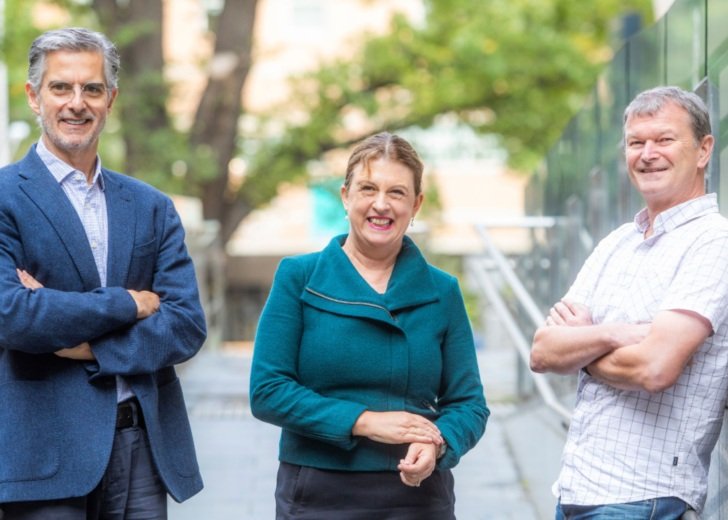
The Developing Brain
The developing brain division encompasses not only research on brain development in early life but also laboratory and clinical work on brain regeneration, particularly if the brain has been damaged by disease or external agents, such as toxins or trauma. In addition, this division conducts work on electronic collective intelligence.
This research division has a large focus on understanding the causes of a wide range of neurological and psychiatric disorders, to inform new strategies for prevention and treatment. We are particularly focused on brain and mind disorders which partly commence in very early human life-even in utero or conception.
We use a wide range of research processes, ranging from laboratory studies of stem cell transplants or brain epigenetics (how genes are switched on and off by environment), the role of neuronal networks in health and disease, clinical trials and human cohort studies. We are developing new personalised medicine approaches such as advanced neuroimaging and clinical support tools for epilepsy.
Led by Division Head Professor Anne-Louise Ponsonby, research teams are advancing knowledge and contributing to new treatments and preventative strategies.
“Optimal development of the human brain is a very important area. Our work encompasses a range of diseases, from investigating cause to repairing damage. We are also working on how healthy brain development occurs such as how memories are formed because improving our knowledge of these processes allows us to better understand what is required for optimal brain health.” – Professor Anne-Louise Ponsonby, Head of the Developing Brain Division.
The Productive Brain
The brain contains more than 100 billion nerves which communicate in trillions of connections. Maintaining the health of this complex organ is critical to every aspect of our lives. Our brains and nervous system influence our ability to function; from how we think to our emotional wellbeing, our ability to communicate and control our bodily systems. The Florey’s productive brain division investigates how the brain integrates complex information to enable appropriate regulation of conscious and unconscious processes. We also interrogate how this impacts our mental and physical wellbeing and use this information to develop ways to diagnose and treat conditions that affect the brain and mind, plus their downstream consequences.
Led by Division Head Professor Andrew Lawrence, research teams are investigating how the brain interacts with every system of the body and undertaking work to prevent, diagnose and treat mental health conditions including addiction, schizophrenia, bipolar disorder, depression, autism and cognitive dysfunction. Systems neuroscience teams generate fundamental knowledge about how the brain regulates key physiological processes and translate these findings into new treatments and therapeutics for complex conditions. We also have teams dedicated to target-based drug discovery programs whose aim is to develop novel neurotherapeutics to improve quality of life.
“Maintaining brain health is critical for our emotional and physical well-being and allows us to make a positive contribution to society. Our goal is to characterise brain function in health and disease and thereby identify mechanism-guided novel therapeutic targets that can be empirically tested in robust models and ultimately human subjects.” – Professor Andrew Lawrence, Head of the Productive Brain Division.
The Ageing Brain
The ageing brain is vulnerable to several serious diseases. As we age, the human brain undergoes changes to its structure, chemistry, function and cognition. While in the past these changes may have been considered an inevitable part of getting older, we believe that it is possible to live throughout old age with a healthy brain. Old age should not necessarily mean the loss of brain function. The Florey’s ageing brain division investigates what we can learn about the brain, and the conditions that can impact it, during the ageing process. An array of research approaches are used from basic studies of aging worms to molecular biology, human imaging and clinical trials. Sophisticated technologies are employed, including gene editing (CRISPR), transgenic mice and mass spectrometry.
Led by Division Head Professor Ashley Bush, this large collection of diverse researchers specialises in generating fundamental knowledge about the ageing process, as well as diagnosis, prevention and treatment of conditions associated with ageing. Areas of expertise in this division include neurovascular conditions like stroke, neurodegenerative diseases including Alzheimer’s disease, Parkinson’s disease and other dementias, movement disorders and other conditions that are associated with ageing. These incurable disorders represent a major societal burden with our ageing population.
“Ageing is the number one risk factor for major brain diseases such as Alzheimer’s, Parkinson’s, stroke and motor neuron disease. Life expectancy is now longer than at any time in mankind’s history and brain disorders of advanced age are a major challenge for new therapeutics. Our division aims to understand the biochemical and clinical processes of ageing that will advance new treatments and improve preventative strategies.” – Professor Ashley Bush, Head of the Ageing Brain Division.
